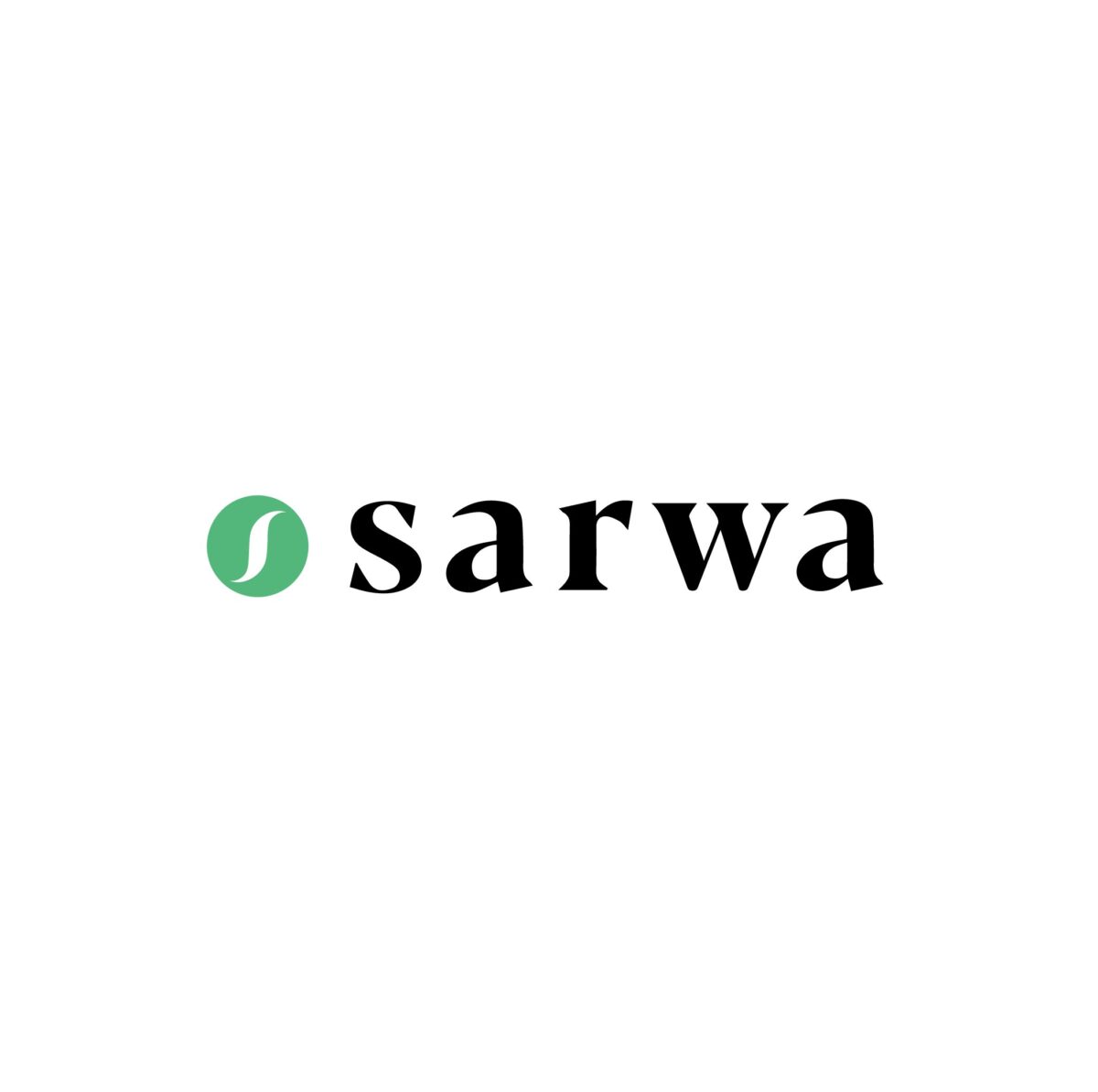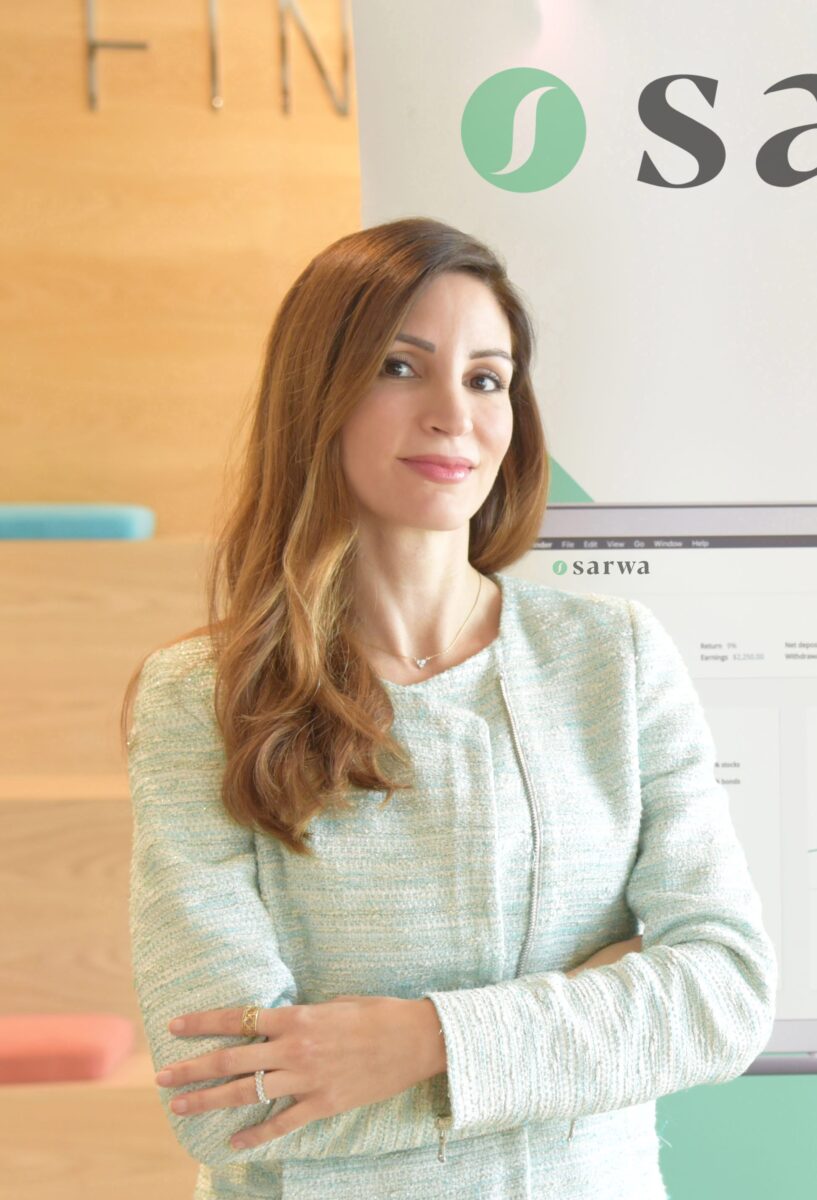The Middle East and Africa (MEA) region is generally an up and coming region with respect to its wider economic development. Specifically, the region has seen a growth and importance in fintech, producing its own unique innovations, entrepreneurs and thought leaders in the space. As The Fintech Times in September celebrates the Women in Fintech we take a moment to hear more from some of the leading female leaders in both the Middle East and Africa. One of them is Nadine Mezher who is originally from Lebanon but lives in Dubai, the United Arab Emirates (UAE) and is an expert in fintech and specifically in wealthtech.

Nadine Mezher is the co-founder and CMO of Sarwa, the first automated investment advisory platform in the Middle East Gulf region. Nadine co-founded Sarwa after years of consultancy in retail strategy and marketing with a track record of successful projects delivered for clients ranging from government entities such as the Office of HH the Crown Prince of Dubai and multi-nationals such as OSN, Nestle… Prior to that, she worked for Dubai Tourism and Commerce Marketing, Government of Dubai in retail strategy and strategic alliances, where she led the management of citywide festivals. Nadine comes from a multi-disciplinary background with over 15 years of experience in management and brand communication across industries. She holds a Bachelor of Business Administration/Marketing from the American University of Beirut, as well as a degree in design from Esmod Paris.
Describe your career journey
I come from a family where entrepreneurial spirit is installed in us from a young age. My career has been a mix of corporate and business ownerships. There were many skills I felt I needed to learn from each approach. I started working at the family office when I was 14, like all my siblings. When I went to study business, I enrolled in a merit-based university job and was working while studying. My first internship was in a bank. I traveled to Italy to continue my studies in design and was also working part time. This is where my career in the fashion industry started, and from there I went to Paris and started focusing more on management and marketing within the sector.
Fast forward to few years back, I was working for the government here on the fashion strategy for Dubai and how to launch initiatives that will position the city as a leader. Eventually, the scope became bigger and I focus on retail strategy across industries, not only fashion. End of 2017, I met my current partners: they were working on this amazing idea to help people in the region save and invest in an affordable and accessible way for everyone.
I was helping with market insights and customers segmentation when I became very passionate about the mission. Together, we launched Sarwa end of 2017 as the first online financial advisor for young professionals in the region.
Throughout my career, I have always worked on things that I am passionate about, and the path led me to where I am today.
As a recognised thought leader and a female, what difficulties have you faced in your career?
Being an entrepreneur is a challenging path, on its own and requires focus and resilience. When you add the layer of gender, it becomes more complicated. I learned very quickly about the ‘Tiara Syndrome; where women tend to do a job, not voice it, and expect that someone will notice. I needed to voice the value add I bring to the table. This is a global issue not a region specific one. In fact the numbers in the region are more promising for women business owners.
That being said, there is still so much work to be done: women at high management level are a minority, and the higher you go the scarcer they become. The same goes for women representation in entrepreneurship. Human nature has us developing affinity for anyone around that resembles us. Men has more affinity with men, and unconscious bias develop out of that.
Women are definitely better positioned today than they ever were. So I am optimistic that we are on the right track. You see more role models and examples of success stories highlighted in the media. There is an increase of funding going to women led companies in the region. We are still not at par. But it is a good start in the right direction.
On the personal level I would say balancing being a mom and a business owner: you have to wear many hats all the time. So I build a structure to help me be more organised.
It only takes awareness to start seeing changes.
What are the future trends and predictions you see happening in the region?
Recently, the pandemic brought a lot of new narratives, and we see major sectors being impacted, while others are blooming.
Overall, I believe we will see more diversification in sectors, away from the main ones we have been used to. You have more and more support for SMEs and Startups whether it is through private or public initiatives. The ecosystem is working closer together, and you have the right infrastructure in place to allow business owners to succeed.
From a consumer perspective, we see emergence in new behavior with more digital adaptation and more saving culture developing. With very high mobile penetration and connectivity, tech is leading the way, impacting business models and our day to day lives.
In the fintech space, we will see an acceleration in certain trends such as more regulators in the region embracing fintech, more funds deployed into the sector and a new generation of adapters that look for convenience and transparency.
What advice and recommendations do you want to give future female entrepreneurs and thought leaders who are based in the Middle East & Africa (MEA) region?
Focus, determination, and solving a real need, are the right mix for a business owner. Build a company that sustains and find the right supportive ecosystem to work from.
Look for support. Don’t hesitate to reach out and speak to as many startups that have ventured down the path, within the industry you are interested in. Collect input and feedback. Learn from their mistakes and from their successes. As long as you know your idea is filling a need in the market, and you have the passionate to persist, go for it!
There are certain stereotypes that need to be broken. The common perception is that women are risk averse. Let’s consider it is true. That does not necessarily mean it’s bad. Some would frame it to say: risk analytical and a focus on driving profitably. If they don’t see the need to raise VC funds, that does not mean they should not have equal access to it.
The reality remains that women founders are not getting as much funding as male founders. The reasons behind this are many. It is improving, but at a slow rate. Female founders deserve a place on the table because of their talent not their gender. Regardless, when you have many perspectives at the same table, you unlock solutions you probably weren’t aware of, because they don’t necessary speak to you. Diversity is key, in all its forms.



